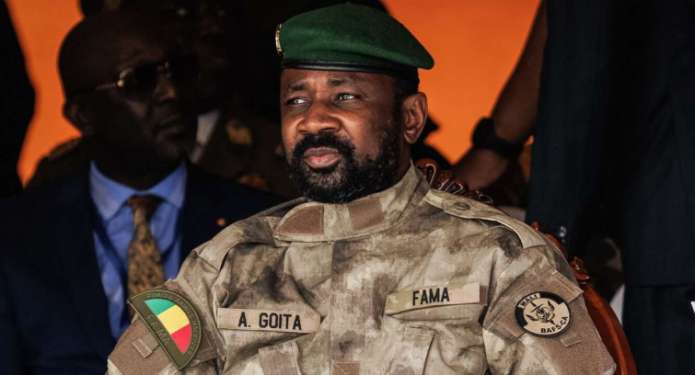Parliament yesterday, Wednesday passed a Shs 29-trillion budget for the financial year 2017/2018 after a prolonged debate. The House presided over by the deputy speaker Jacob Oulanyah managed to beat the deadline set by the Public Finance Act which requires legislators to have the budget approved by May 31.
Check also: South Sudan Conflict Affects Uganda’s Economy
The new budget will see expenditures for the next financial increase by Shs 3 trillion from the Shs 26 trillion allocated in 2016/2017. The opposition had bitterly opposed the budgetary proposals especially plans to spend money on the oil roads in the absence of feasibility studies.
The opposition with a minority report wanted government to a re-allocate Shs 705 billion budgeted for construction of 15 oil roads. The opposition said only two out of the planned 15 oil roads earmarked for funding in the next financial year had feasibility studies and have detailed designs.
Government allocated Shs 1.3 trillion to the construction of the 15 oil roads in the coming financial year. The total works and transport budget proposed is Shs 4.6 trillion.
The roads with complete feasibility studies and detailed designs are Hoima-Butiaba-Wanseko road whose construction is budgeted at Shs 444 billion and Lusalira-Nkonge-Ssembabule road budgeted at Shs 190.8 billion.
The roads whose construction the opposition is contesting due to absence of feasibility studies include Masindi-Biiso road budgeted at Shs 108 billion, Masindi-Bugungu via Murchison Falls national park budgeted at Shs 152 billion, Kaseeta-Lwera via Bugoma forest whose budget is Shs 34 billion, and Wanseko-Bugungu road estimated to cost close to Shs 5 billion.
Others are Buhimba-Nalweyo-Kakindu-Kakumiro road estimated to cost over Shs 195 billion, Kyotera-Rakai road at Shs 43 billion, and Kabaale-Kiziranfumbi road budgeted at Shs 56.8 billion. Also on the list are a bridge at Paraa crossing to cost Shs 8.7 billion and Hahwa-Nyairongo-Kyarushesha road estimated to cost Shs 54.3 billion.
Dokolo Woman MP Cecilia Ogwal presented the minority report on the floor of parliament. She said it was not prudent for parliament to appropriate funds to 13 roads that lack feasibility studies and detailed designs.
“There is no basis to inform the costs and commit public funds,” said Ogwal.
She further demanded that Shs 705 billion be reallocated from oil roads without feasibility studies and detailed designs to fund other priority budget items. The opposition demands touch one of the 2017/2018 proposed financial year budget focus areas.
Government seeks to intensify transport infrastructure development to lower production costs as well as completing oil-related infrastructure development to enable commercialisation and the first oil output in 2020.
The opposition’s demands could however not sail through. They were defeated by the majority ruling National Resistance Movement (NRM) legislators who turned up to vote in favour of the budget proposals.
The largest proportion of the resources have been allocated to works and transport sector taking Shs 4.6 trillion followed by education at Shs 2.4 trillion. Energy and mineral development takes Shs 2.3 trillion with health and security taking Shs 1.8 trillion and Shs 1.4 trillion respectively.
The budget focus according to parliament’s budget committee chairperson, Amos Lugoloobi, is on increasing agricultural production and productivity for food security and strategic exports. It also focuses on enhancing private sector development for export promotion and import substitution.
Finance minister Matia Kasaija is expected to present details of the budget in his budget speech scheduled for June 8.
Parliament approved the budget in line with Section 14 of the Public Finance Management Act (PFMA) that now requires parliament to approve the budget before it’s read out to the public.
Out of the Shs 29 trillion budget, Shs 7.6 trillion will go towards recurrent expenditure, Shs 11.4 trillion for development expenditure while 9.9 trillion is for statutory expenditure.
Revenue measures
According to Lugoloobi, the Ntenjeru North MP, domestic revenue collections are projected at Shs 16.6 trillion in the financial year 2017/2018. The projected revenue is equivalent to 15.2% of GDP against 14.42% of GDP in the financial year 2016/2017.
Source: The observer
Check also;
- This Is Where Ugandan Government Should Focus In 2017/2018 Budget
- Ugandan Police Officer Arrested Over Selling Bullets At 6,000shs
- Meet A 34 Year Old Ugandan Engineer, Hussein Nsamba With Two PhDs
Please use the button below to contribute to Newslex Point, Inc. using a credit card or via PayPal.

 Newslex Point News in Uganda, Uganda news
Newslex Point News in Uganda, Uganda news












